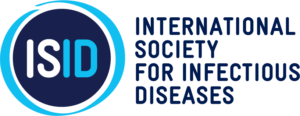Antimicrobial resistance (AMR) is one of the greatest threats to health care throughout the world. It has been described as a silent pandemic. Nevertheless, it should not be taken as silent anymore, as the world is observing a rapid increase of resistant strains across the globe. AMR causes significant morbidity and mortality, and alarmingly affected are the low- and middle-income countries. In a recent systematic analysis, the disease burden is estimated as 4.95 million deaths associated with bacterial AMR and 1.27 million deaths directly attributable to AMR. This makes AMR the third leading cause of death in 2019. The study reported highest all-age death rates due to AMR in low-and middle-income countries. The challenge requires an integrated global response, but what is even more important are national, tailored approaches.
National Action Plans (NAP) on AMR were developed by countries in 2017, after the endorsement of the Global Action Plan and laid out a comprehensive program for actions against AMR. The implementation of National Action Plans on AMR is at various stages in different countries. According to TrACSS (monitoring tool by WHO), 140 countries have developed their action plans, 95 countries are implementing NAPs at different stages, and 32 countries are actively monitoring their implementation status. The NAP on AMR defines five strategic objectives for the containment of AMR. The priorities include creating and improving awareness among the clinicians, pharmacists, policy makers, and community towards responsible use of antimicrobials; strengthening the knowledge through establishment and utilization of data surveillance mechanism; reducing the incidence of infections through improving infection prevention and control practices in healthcare settings; optimizing the use of antimicrobials through improving antimicrobial consumptions and utilization understanding; and developing sustainable investment solutions including vaccines and diagnostics.
Low-and middle-income countries are struggling on many fronts. It is not only the microbiology laboratories that need strengthening and quality data production. Multiple approaches are required at various levels including active infection prevention and control programs in hospitals, antibiotic prescribing guidance for clinicians, and developing the role of hospital pharmacists, community pharmacies and status of community itself. Low- and middle-income countries are struggling with antimicrobial stewardship program establishments at health care facility levels. It seems to be a multifactorial challenge. The countries have fragile health systems which are burdened by the overcrowded health facilities. Many countries have an insufficient number of specialized/ trained physicians, which leads to inconsistent provision of specialized services at all healthcare facilities. Infection prevention and control deteriorate further due to the lack of specialized staff including infectious diseases specialists and infection control nurses at hospitals. The authorities are unable to designate specialized teams for infection control measures in the hospitals. Moreover, the insufficient or absence of regulations related to antibiotics consumption/utilization, over-the-counter availability, and availability of substandard or counterfeit antimicrobials are other essential factors that are driving AMR. One of the key challenges is the inadequate health budget to address the needs of growing populations. The subsequent outcome of all these interrelated factors is the increase of infections by resistant pathogens. The burden on health systems due to AMR related morbidity and mortality is enormous.
Despite large amounts of funding for AMR and interest of multiple stakeholders, many countries continue to struggle to overcome the challenges. Some of the core challenges are presented, which should be seriously considered by the stakeholders to get better results. In the majority of developing countries, the struggle and understanding at the leadership level remains an issue of concern. Leadership plays a fundamental role in the success of any program. At times, leaders fail to understand the long-term vision/strategy for controlling AMR. They may find it difficult to engage all relevant stakeholders for effective decision making. This all adds to the challenge of channeling funds in appropriate ways towards AMR and AMS activities. There is an unconcerned approach towards implementation of necessary health-related laws. The overlook of necessary legislation, for example concerning the over-the-counter prescription of antibiotics, worsens the AMR situation.
Stakeholders’ interests and finances need to be channeled to achieve tangible outcomes towards controlling AMR. The approach of targeting low hanging fruit should be channeled to long-term, sustainable system building. Health governance plays a significant role in this regard. A visionary approach and altruistic attitude are required in leadership to achieve long lasting effects in the field of antimicrobial resistance and stewardship.
Reference: Murray, Christopher JL, et al. "Global burden of bacterial antimicrobial resistance in 2019: a systematic analysis." The Lancet (2022)
Blog Post from Emerging Leader, Dr. Afreenish Amir (Pakistan)
Dr. Afreenish Amir (MBBS, M.Phil (Microbiology), PhD (Microbiology), MPH) medical microbiologist with over twelve years of experience in clinical microbiology and infectious diseases; currently working as Technical Officer AMR at National Institutes of Health, Pakistan. She is working on implementation of National Action Plan on Antimicrobial Resistance and IPC, GLASS, AMR and AMC Surveillance, Stewardship and Advocacy in Pakistan. She has developed Pakistan AMR Surveillance System (PASS) and National Antimicrobial Stewardship Program. She has 48 publications in national and international journals and many are underway. She is a Harvard Kennedy School and GCSP Geneva alumna (on Global Health Security), GIBACHT fellow on biosafety and biosecurity (Germany), Lead Auditor ISO 9001:2015 (CQI, IRCA UK, Hong Kong Veritas HKV), Chair Emerging Leaders program in Infectious Diseases ISID (USA) and Consultant Clinical Microbiology for American Society of Microbiology.

